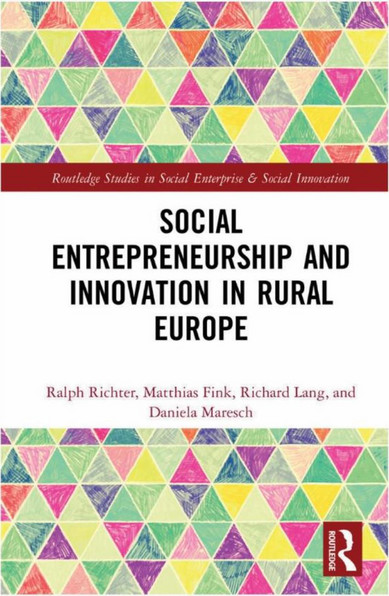Main Content
New book: How social enterprises bring innovation to rural regions

Recently, the federal commission on “Equal Living Conditions” reported considerable regional inequalities in Germany. Rural regions, in particular, suffer from poor education and employment opportunities, lower incomes and shortages in the provision of public and private services. These observations, however, are not specific for Germany. Many rural regions across Europe face challenges such as a lack of medical practices, village shops, schools and public service provision. In this situation, expectations rest on a relatively new type of organization: social enterprises. A new book explores the role of social enterprises in rural spaces.
Social enterprises pursue social goals with entrepreneurial means and operate mostly in areas where the state and the market withdraw. The European Union Social Business Initiative (2011) observes “high levels of interest in the capacity of social enterprises […] to provide innovative responses to the current economic, social and, in some cases, environmental challenges by [the] improvement of local social services, territorial cohesion, etc.”
In their new book "Social Entrepreneurship and Innovation in Rural Europe" IRS researcher Ralph Richter and his co-authors from the Johannes Kepler University Linz/Austria and the University of Southern Denmark investigate in which way social enterprises address challenges in rural regions and, in particular, how they do that. “Social enterprises derive their legitimacy, among others, from the assumption that they are able to respond to social problems in a more innovative way than public authorities would be able to do,” says Richter. “Whether and how they develop and establish innovative solutions is largely unexplored. Our book aims to reduce this gap”, mentions Richter another goal. The presented results are based on a comparative longitudinal study of rural social enterprises in Ireland, Poland, Austria and Greece. Using qualitative ethnographic methods, the authors investigated on site the case companies and their embeddedness in the respective rural environment for two months each.
On 222 pages, the authors show that rural social enterprises address typical challenges of rural areas, but pursue very different approaches. While the Austrian social enterprise operates rural open technology labs aiming to attract more creative people of living in the countryside, the Greek social enterprise supports small family farms with the cultivation, processing and marketing of a new field crop, cultivated for the first time in Europe. The social enterprises gain their innovative power from the recontextualisation of ideas and the mobilization of different resources. For example, the Polish social enterprise has transferred the idea of thematic museum villages from Western Europe to Poland and made them useful to train people with disabilities and low job prospects and bring them into work.
Using a vertical network model and the "Strategic Action Field" approach (Fligstein/McAdam 2012), the authors reveal characteristics of social enterprises that distinguish them from other actors in rural areas. Social enterprises are hybrid organizations that act as intermediaries between the state, market and civil society. This intermediate position allows them an out-of—the-box-thinking, but at the same time makes them vulnerable due to various dependencies. “Social enterprises bring new ideas into remote places, but can pursue the goal of enabling equal living conditions only together with public authorities, private businesses and civil society actors. Rural social enterprises should not be a cloak for the further disappearance of authorities from rural regions”, says Richter.
The new book goes back to the EU-funded research and training project RurInno ("Social Innovations in Structural Weak Rural Regions”), in which the IRS was the lead partner between 2016 and 2018. The project served both the investigation of rural social enterprises and the training of social entrepreneurs in the involved research institutes.

